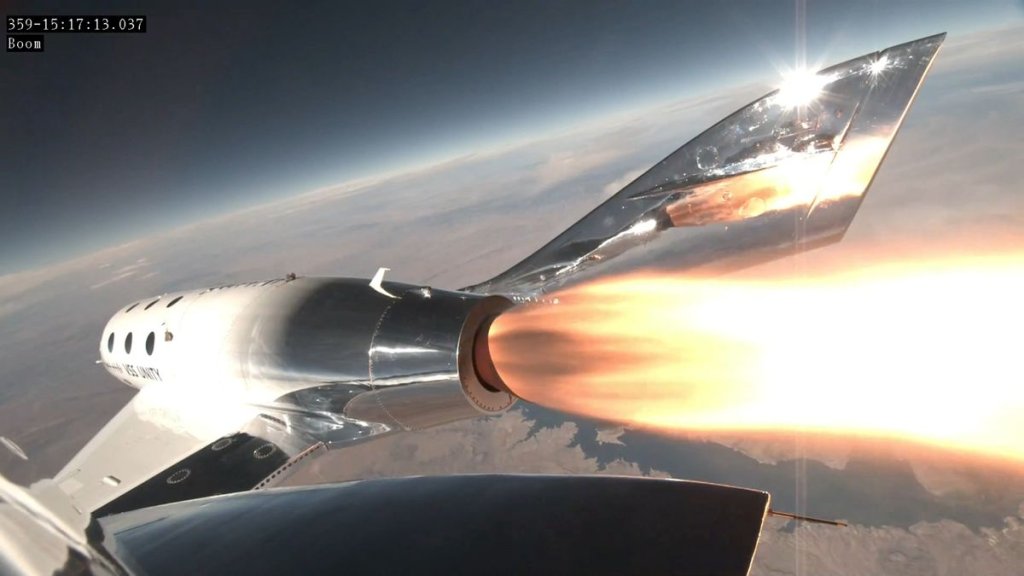Virgin Galactic’s next trip to the edge of space will include some familiar names.
The company announced on Wednesday (Oct. 18) that Galactic 06, its fifth commercial spaceflight, has a flight window that opens on Nov. 2, 2023. The flight will be Virgin Galactic‘s sixth spaceflight in as many months and will see its reusable space plane VSS Unity reach an altitude of about 54 miles (87 kilometers) above Earth, enough for its passengers to experience weightlessness and see the blackness of space.
Those passengers will include an unnamed private astronaut of Franco-Italian nationality; planetary scientist Alan Stern, the principal investigator of NASA’s New Horizons Pluto mission, and Kellie Gerardi, a science communicator and bioastronautics researcher for the International Institute for Astronautical Sciences (IIAS). Both will be conducting research during the flight related to the effects of spaceflight on the human body, while Stern will also “conduct practice activities for an astronomical experiment” set for an upcoming NASA flight, according to a Virgin Galactic statement.
Related: Virgin Galactic launches 1st Pakistani to space on 4th commercial spaceflight (video)
Stern, who has overseen one of NASA’s most ambitious spaceflight missions for years now, said he’s looking forward to finally making the trip into space himself.
“After years of sending machines to conduct research on my behalf, I’m thrilled to be making this maiden spaceflight,” Stern said in the Virgin Galactic statement. “What sets this flight apart from others, and which likely represents a new kind of space activity, is that more than anything else I will be training — in space — for future space experiments I will be performing with NASA funding.”
Meanwhile, Gerardi said the mission represents not only a lifelong dream but the beginning of a new era in which space is within reach for researchers. “I’m grateful for the support and confidence that IIAS continues to place in me, and I’m looking forward to paving the way for our many talented researchers who will follow, using space as a laboratory to benefit humanity,” Gerardi said, on behalf of IIAS.
Virgin Galactic’s space tourism flights use a “mothership” aircraft, VMS Eve, to carry its space plane VSS Unity to an altitude of around 50,000 feet (15,240 meters) before releasing it. Unity’s rocket engine then ignites, carrying the space plane toward suborbital space at nearly three times the speed of sound.
Its most recent flight, Galactic 04, launched the first Pakistani to space on Oct. 6. Less than two months prior, Galactic 02 saw the first mother-daughter duo and the youngest person ever get lofted to the final frontier.

